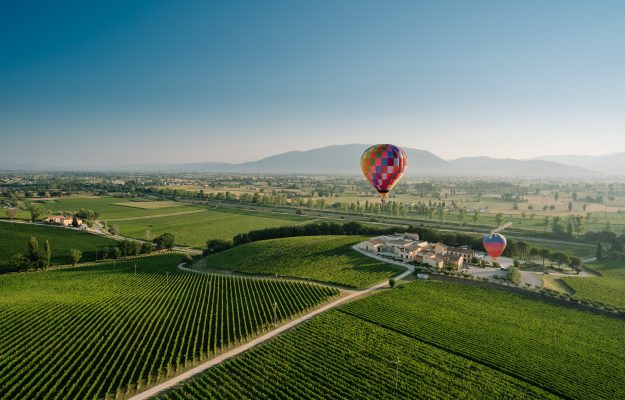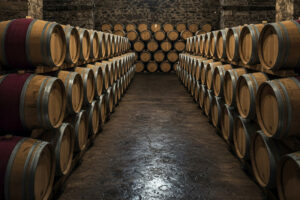They admit they know very little about wine, most of them consume it occasionally, 3-4 times a month, or more than once a week, and when they choose it they evaluate mainly color, country of production and price. However, for a sustainable wine (a term that for them has more value than organic), most of them are willing to spend from 10% to 30% of the price of a bottle of wine (with 41% spending on average between 5 and 10 euros, and 30% between 10 and 25 euros). It is the unique relationship between young people, wine and the concept of sustainability, analyzed by the survey signed by Professor Lorenzo Zanni of the University of Siena for the Equalitas certification protocol and for the Arnaldo Caprai winery, a pioneer in investments in sustainability and a driving force behind the relaunch of the Sagrantino di Montefalco territory, which, for years, with many initiatives, such as “Sagrantino Venti Venti”, has been embracing the philosophy of territorial sustainability, “an important aspect, because certain things only work if they become systemic and involve many producers and players in the territory,” recalled the president of the Consorzio dei Vini di Montefalco Filippo Antonelli. Sustainability that, however, is such only if it is not only environmental but also economic because budgets in place allow you to do research and invest, essential aspects for the protection of the environment and the territory. That is, if it is ethical and if it also respects the conditions of those who work in the company. That is, if it goes beyond the boundaries of the company, and generates economy and value for the territory, also by investing in initiatives related to the good of the community, such as cultural events, recovery of public property, architectural and artistic, and more. A path taken “ante litteram”, when sustainability was not yet a fashion term, by wineries such as Caprai itself, or Castello Banfi, one of the leading realities of Montalcino and Brunello, among the case histories of the round table, led by journalist Maurizio Pescari. However, going beyond the “simple” environmental aspect is complicated when it comes to sustainability: in fact, Professor Zanni’s research shows that young people associate sustainability with the lower use of fertilisers and herbicides, the defence of sustainability, the reduction of greenhouse gas emissions and so on, while few think, for example, of the creation of jobs, social support initiatives in the area, and actions to protect, develop and train in the cultural sphere. Millennials according to which, moreover, in the glass, the concepts most associated with a wine considered sustainable are those of “natural”, “healthy”, “pleasant” and “genuine”. “A research from which even surprising elements emerge, thinking of young people, since the main instrument of information is the label of the bottle, rather than the internet, websites or apps, or the specialized press - explains Zanni to WineNews - but that also tells us what direction to take, and how much there is still to work to tell that sustainability goes beyond the environmental aspect”.
Also because sustainability, even if only environmental sustainability, is a complex concept to be told and summarized, even in the bottle. Not to mention that in Italy alone, there are dozens of sustainability protocols. “When recorded them in 2015, launching the project, we counted more than 15”, underlined Stefano Stefanucci of Equalitas. Nevertheless, certifications are important, especially in foreign markets, under the impetus of which, especially from Northern Europe and Canada, in recent years, we have begun to talk more concretely about sustainability and certifications. “The Equalitas protocol - launched by Federdoc and the Italian Wine Union, and now supported by Csqa, Valoritalia and Gambero Rosso, among others - is considered one of the most comprehensive at international level, precisely because it evaluates not only the technical and agronomic aspects, but also the environmental, social and economic, in a profound way,” explained Stefanucci. Many aspects that are difficult to summarize on the label, perhaps in a logo or a symbol, but which is considered to be of great use to more than 80% of young consumers. An example of this, testifying to the validity of one of the premises, namely that sustainability is such and works when it is a philosophy shared by the territory, comes from South Tyrol, as pointed out by Helmut Kocher, founder of the Merano Wine Festival: “In South Tyrol we have been talking for some time about sustainability at 360 degrees, and not only in the wine chain. To the point that the brand of Alto Adige, which is on the bottles of all the wines with the denomination of the territory, for consumers, as well as an icon that tells the origin of wine, has also become synonymous with sustainability itself, because all the Alto Adige is perceived as a territory that is attentive to this theme “.
Copyright © 2000/2026
Contatti: info@winenews.it
Seguici anche su Twitter: @WineNewsIt
Seguici anche su Facebook: @winenewsit
Questo articolo è tratto dall'archivio di WineNews - Tutti i diritti riservati - Copyright © 2000/2026







































































































































































































